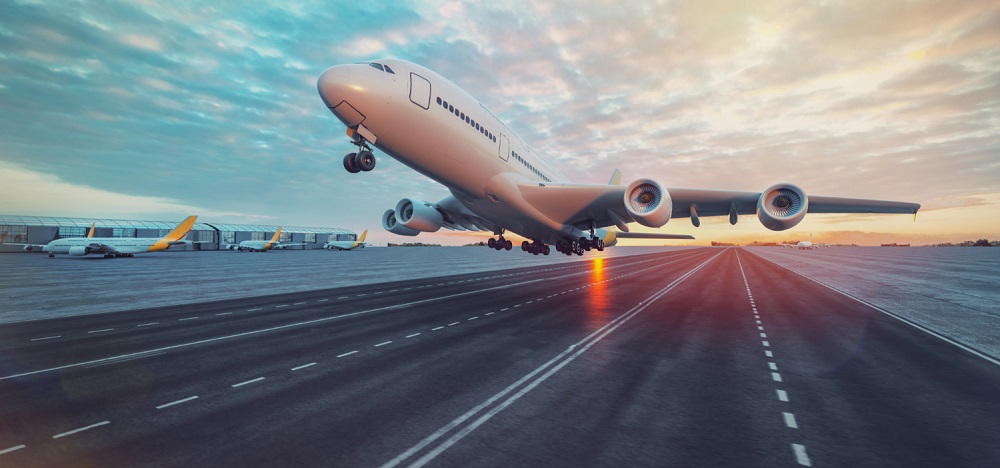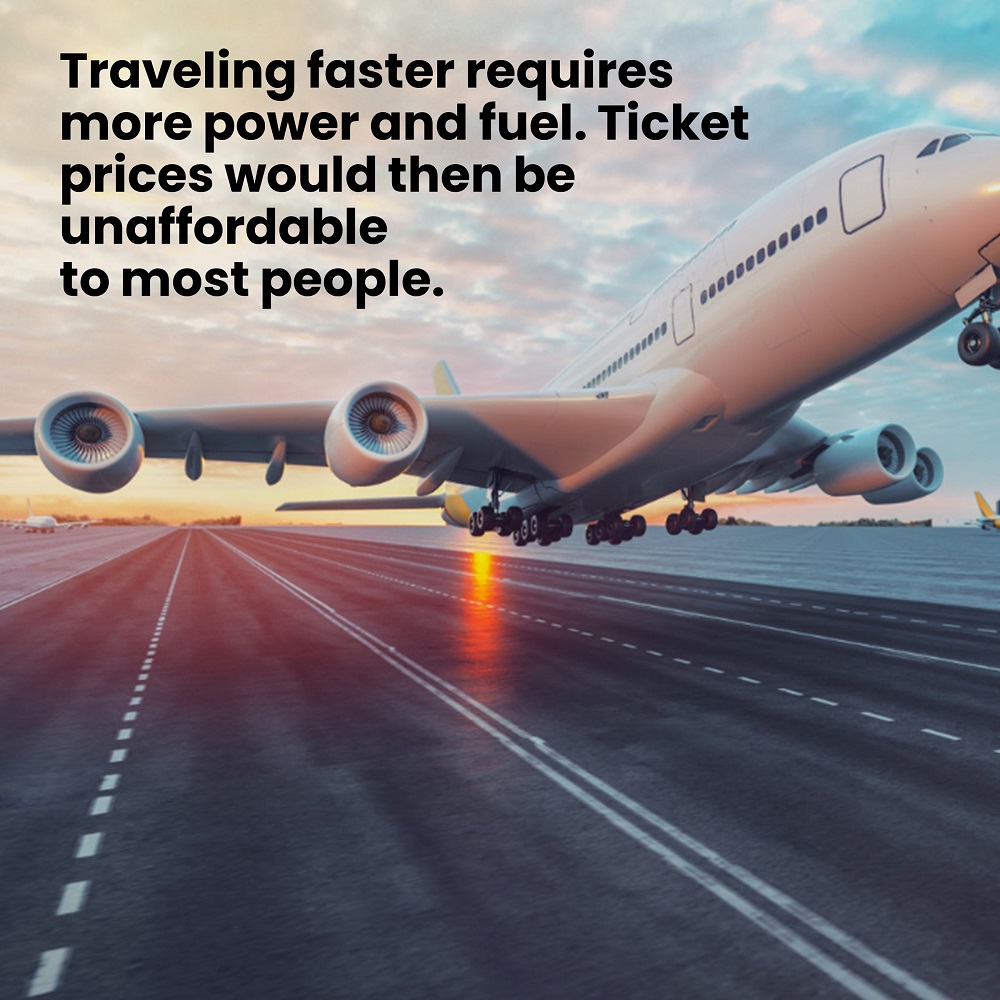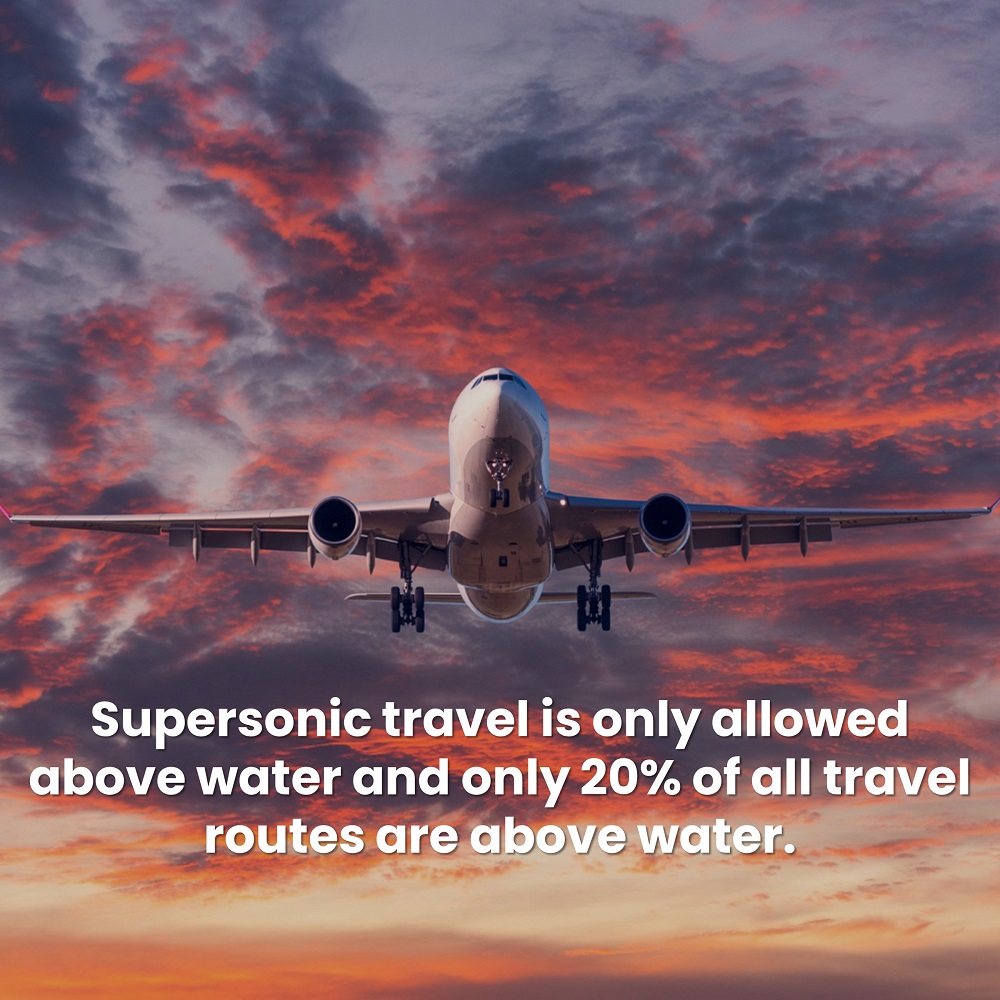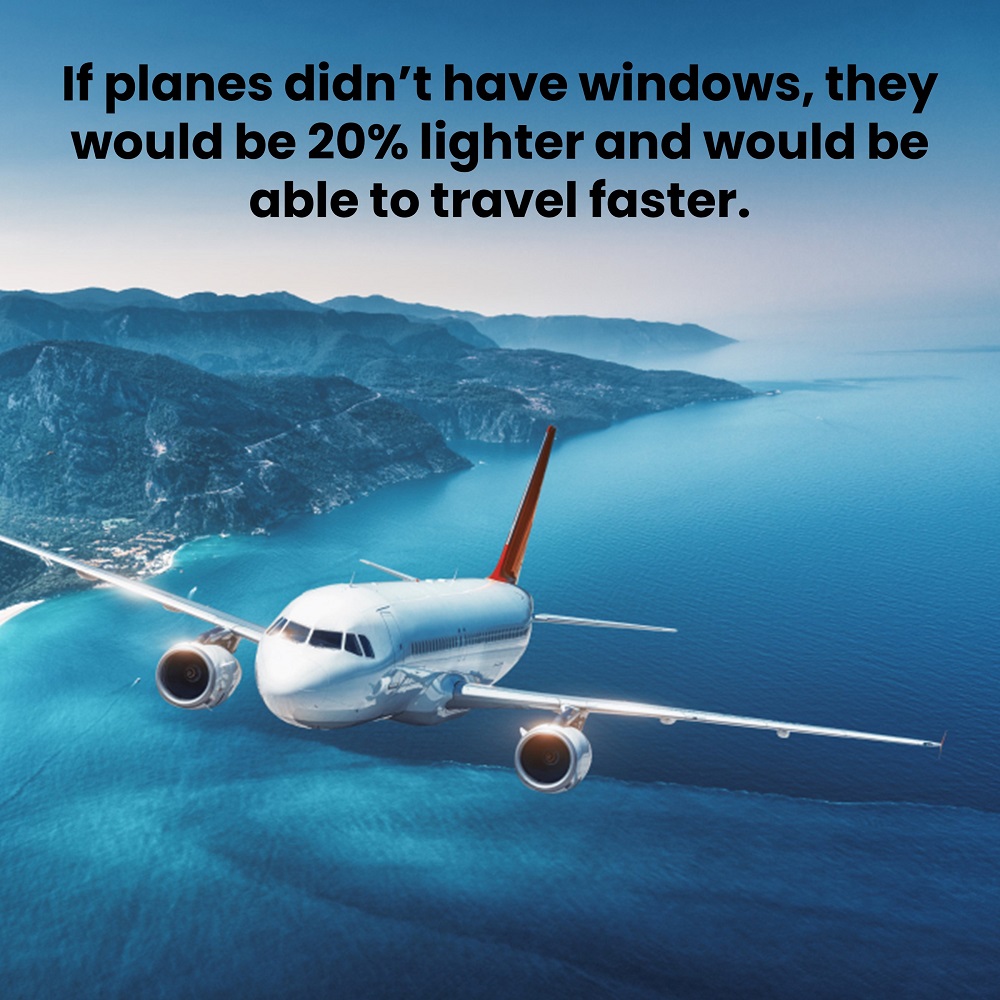Why our planes not going any faster? ✈️

Almost everything in our lives has become faster in the last 50 years. Huge advancements have been made in all walks of life to speed things up, yet it seems that commercial aircrafts still go at the same speeds as they used to 50 years ago.
Why didn't airplanes catch up with everything else to reduce travel time?
The problem is not the engineering. We are very much capable of building faster aircrafts. The Concorde is a living testament, though discontinued now, but the Concorde was in operation for more than 20 years travelling twice the speed of sound.
The core issue is a mixture of economics and the environment, mainly economics.

Economics and Efficiency
Traveling faster requires more power and hence more fuel. This will significantly increase the travel costs. Ticket prices would triple, which will eventually lead to less sales and lower profit margins.
Plane carriers and airline operators have found the sweet spot of travel efficiency that makes air tickets affordable to most people and travel time acceptable at the same time.
The current formula works for everyone and any change would disrupt the balance.

The Environment
Another crucial issue that needs to considered is the effect that supersonic travel has on the environment.
Travelling supersonic over land is going to cause major damage to the buildings on land due to the supersonic boom.
For that reason, supersonic speeds are restricted to over the sea. Since 80% of all routes are above land, it just doesn't make sense to build commercial aircrafts that can only utilize their full power 20% of the time.
Exiting commercial aircrafts already travel at 0.8 the speed of the sound, which is technically the limit.


























